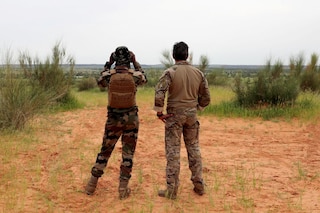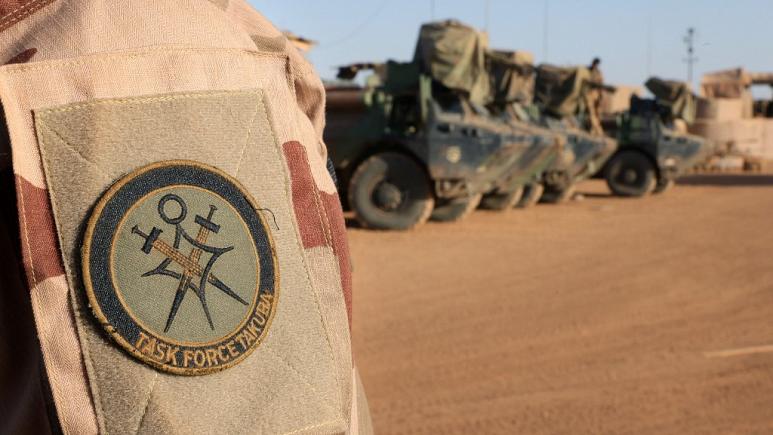•Junta orders Denmark to withdraw troops ‘immediately’ from Sahel region
•Denmark says its troops are in Mali on basis of “clear invitation”
By Euronews and Reuters
Mali’s junta government has called on Denmark to withdraw its 100 troops “immediately” from the country’s Sahel region.
Danish forces were recently deployed in the south of the African country as part of the European special task force known as Takuba.
The French-led operation was launched in March 2020 to help protect civilians from jihadists in the so-called tri-border area between Burkina Faso, Mali, and Niger.
But the current transitional government in Mali said the arrival of around 90 Danish soldiers had “taken place without its consent”.
Last week, around 90 announced elite Danish soldiers and military surgeons arrived in Mali, but Bamako said this was done without the necessary bilateral agreement.about:blank
Denmark said on Tuesday that it had sent its special forces Mali following a “clear invitation” from the Malian regime.
Foreign Minister Jeppe Kofod told reporters that Copenhagen was trying to “clarify” why Mali had suddenly asked for their departure.
“The Danish contribution has been accepted both by the previous Malian government and, on several occasions, by the current transitional government,” the ministry added in a statement.
Mali’s military junta has been in power since an August 2020 coup overthrew the government led by former President Ibrahim Boubacar Keïta.
The surprise request for Danish forces to withdraw comes as the junta battles for control with the international community, who want to see Mali return to civilian government in the near future.
European nations have also expressed concern about the presence of military officials in Mali from the Russia-backed Wagner Group. Relations between Mali and France — which has been militarily engaged in the Sahel since 2013 — have deteriorated severely in particular.
Belgium, the Czech Republic, Estonia, Hungary, Italy, the Netherlands, Norway, Portugal, and Sweden are all participating in the Takuba task force — intended as a successor to France’s previous counter-terrorism forces.
Between 2017 and 2022, around €122 million in aid was also allocated to Mali by Denmark, and many Scandinavian NGOs remain active in the country.

But Denmark said on Tuesday its troops deployed to Mali as part of a French-led counter-terrorism task force were there on the basis of a “clear invitation”, responding to the Malian transitional government’s continued demands for their immediate withdrawal.
The Danish government has reacted with puzzlement to Mali’s initial statement on Sunday, which said it had not been consulted about the deployment last week of about 90 personnel, including special forces and surgeons.
The European force, know as Takuba, was set up to help Mali and West African Sahel neighbours Burkina Faso and Niger tackle militants linked to the Islamic State and al Qaeda who have occupied swathes of territory in the area where their borders meet.
Speaking in Brussels, Foreign Minister Jeppe Kofod said Danish troops were in Mali on the basis of a clear invitation, “just like the other parties in the operation.”
Denmark’s foreign ministry said there was “considerable uncertainty about the transitional government’s announcement” and that it was in contact with Mali’s government.
France also rejected as “unfounded” Mali’s allegations and said it was discussing the situation with its European partners.
Addressing reporters after a meeting with the chair of the African Union Commission, Malian Prime Minister Choguel Maiga insisted the government had not been informed of the deployment.
“We don’t accept it. No one will come to Mali anymore by proxy,” Maiga said. “Why have they come? Is it because they are preparing something against the country?”
Denmark’s Kofod also criticised the alleged presence of Russian mercenaries in Mali, calling it “highly problematic”. Tensions have escalated in Mali over allegations that transitional authorities have deployed private military contractors from the Russia-backed Wagner Group, which some EU countries have said is incompatible with their mission.
There has also been discord between Mali and international partners, including regional bodies and the EU which have sanctioned Mali over the transitional government’s failure to organise elections following two military coups.
Credits | Euronews, Reuters

